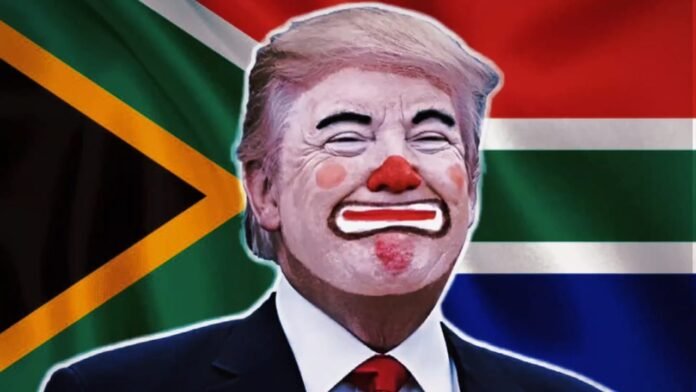South Africa is hosting the first-ever G20 Leaders’ Summit on African soil — and a striking national sentiment is dominating public discourse: relief and celebration over the absence of US President Donald Trump and his delegation.
Trump’s boycott, rooted in debunked claims about “white genocide” in South Africa, was widely dismissed as misinformation.
Public reaction has been far more blunt than President Cyril Ramaphosa’s measured remark that the boycott was “their loss.”
“No Patriotic South African wants Trump here. The people that will miss his presence obviously are the G20 members and treasonous individuals who want South Africa to be divided.”
Many South Africans described the boycott as a removal of an irritant, freeing the summit from the spectacle and unpredictability usually accompanying Trump’s global appearances.
The sentiment aligns with a wider reclaiming of global leadership by Pretoria — a moment that began when South Africa formally assumed the G20 presidency from Brazil during the Rio Ceremony last year:
A Summit – and a moment – shaped by absences
While Trump’s boycott has dominated headlines, he is not the only no-show shaping geopolitical readings of the Johannesburg summit.
Argentina’s Milei follows Trump’s lead
Argentine President Javier Milei also skipped the summit, sending a delegation in what analysts see as a sign of unwavering political loyalty to Trump.
The connection stems partly from financial support and bailouts the US endorsed during Argentina’s economic collapse — a lingering anchor for this alignment.
Mexico stays home amid unrest
Mexican President Claudia Sheinbaum chose not to attend, prioritising a domestic crisis marked by nationwide protests led by Generation Z activists outraged over political assassinations, corruption and spiralling crime.
Her absence underscores how domestic volatility can outweigh even G20 participation.
China’s deliberate delegation
President Xi Jinping also chose not to attend — a move consistent with a growing pattern analysed in detail here:
➡️ Calculated Absence: Why Xi Jinping’s G20 Delegation Is a Masterclass in Confidence, Not Centralization
Beijing’s strategy reflects a shift toward “home-court diplomacy,” prioritising bilateral relations over large multilateral summits — not a slight against South Africa.
A rare opening for African leadership
Despite the absences, more than 40 Heads of State and Government have descended on Johannesburg. For South Africa, the reduced presence from Western populist leaders is an opportunity:
- to push harder for Global South debt relief,
- to foreground climate justice,
- to champion inequality reform, and
- to reaffirm South-South solidarity.
In a year marked by major global rifts — including worsening US–South Africa relations following Trump’s severe tariff offensive — the summit is a crucial space for Pretoria to reassert its diplomatic relevance.
➡️ Trump Tariffs Hit South Africa Hard — Ramaphosa Scrambles to Contain Fallout
This shift in geopolitical gravity is also visible within the South African diaspora, where rising voices like former schoolboy-turned-politician Zohran Mamdani are reshaping global narratives on race, justice and foreign policy:
➡️ South African Schoolboy Turned Trump Critic Zohran Mamdani Makes History as NYC’s Youngest Mayor
South Africa’s message to the world: The show will go on
With Johannesburg under tight security and road closures (including major routes such as the M1, N1 and N12 – as detailed in recent NOWinSA G20 road-closure coverage – the city is determined to host a smooth, disruption-free summit.
This G20 is more than a diplomatic gathering.
It is:
- a milestone for African leadership,
- a reset for South Africa’s global standing, and
- a moment of national cohesion rooted in rejecting false narratives and reclaiming agency.
The message from Johannesburg is unmistakable:
Even when powerful global figures stay away, Africa’s voice will be heard — clearly, confidently, and on its own terms.

